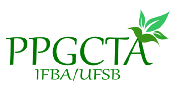Banca de QUALIFICAÇÃO: ROSICLÉIA NASCIMENTO DE OLIVEIRA NOVAIS
Uma banca de QUALIFICAÇÃO de MESTRADO foi cadastrada pelo programa.STUDENT : ROSICLÉIA NASCIMENTO DE OLIVEIRA NOVAIS
DATE: 13/10/2023
TIME: 09:00
LOCAL: Metapresencial através do link: https://meet.google.com/gzm-nmys-ijj
TITLE:
Garbage in the sea, an interdisciplinary proposal for teacher training
KEY WORDS:
Combating litter in the sea, Environmental education, Microplastics, Maguerez's Arc, Active Methodology
PAGES: 80
BIG AREA: Outra
AREA: Ciências Ambientais
SUMMARY:
The sea is responsible for a large part of the economic income of many families and the pollution generated by anthropogenic solid waste (ASW) promotes revenue losses in several economic sectors, such as tourism and fishing (TURRA et al. 2020). Solid waste affects all aquatic environments globally and poses a threat to seas and oceans, causing impacts even in areas far from the sources of pollution, since it can be carried by winds and marine currents. This study aims to characterize the garbage in the Coroa Vermelha region in Santa Cruz de Cabrália in the state of Bahia, based on samples obtained from a fisherman who fished with a trawl net, by means of analyses starting from the macro to the micro, seeking to identify the quantity, categories and possible origins of the items caught, This analysis will serve as the basis for ongoing training to involve and sensitize state school teachers from Porto Seguro (BA) on the issue of combating garbage at sea, from an interdisciplinary perspective using the Maguerez arc to identify the various possibilities for working on the same issue based on a real problem. The methodology of this work consists of a multi-method approach, comprising the stages of characterization of marine litter, the transformation of plastic into microplastics, identification of polymers, behavior and possible threats in the marine environment in Coroa Vermelha and continuing teacher training. As for characterization, this stage consisted of collecting and sorting the material by weight, volume, density, color and effort. After sorting, the 'plastic' items from the first stage were separated and selected in order to identify their polymer composition in accordance with ABNT NBR 13.230 and ISO/TC 61/SC 14 in order to identify the polymers present in the samples. From the samples collected between August 2021 and January 2023, 1,252 items were found, of which 1,191 were plastic compounds, 514 predominantly white and 447 transparent. The highest sample numbers were recorded in August and February 2022, with 476 and 373 items respectively. As far as polymer identification is concerned, the samples were dried and/or melted in an oven and ground manually or in a ball mill, obtaining the size of microplastic, subsequently being transformed into pellets and subjected to analysis by infrared spectroscopy (FTIR). From the results obtained, all six types of polymer were found. For further analysis, simulations of the buoyancy of the microplastic will be carried out in the laboratory and the consequences reviewed in the literature. In the third stage, the garbage in the sea will serve to outline the development of teacher training with a focus on the Problematization methodology based on the application of the method called the Maguerez Arc structured in five steps starting from the observation of reality, going through a broad process of study and reflection, returning to the effective execution in reality from the construction of didactic-pedagogical proposals to be developed in the classroom. This study will contribute to understanding the characteristics of waste in marine ecosystems and will serve as a basis for defining strategies to mitigate the problems generated.
COMMITTEE MEMBERS:
Externo ao Programa - 1216239 - ANDERS JENSEN SCHMIDT - nullExterno ao Programa - ***.826.800-** - FÁBIO LAMEIRO RODRIGUES - UFRGS
Presidente - 1041340 - LEONARDO EVANGELISTA MORAES
Interno - 1563747 - MARCOS EDUARDO CORDEIRO BERNARDES



